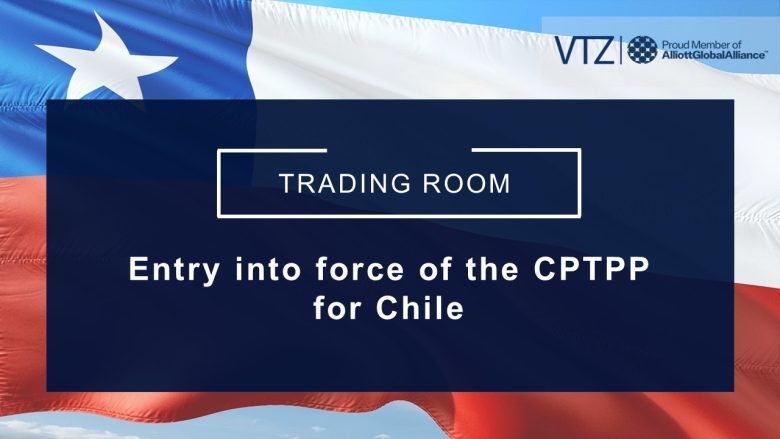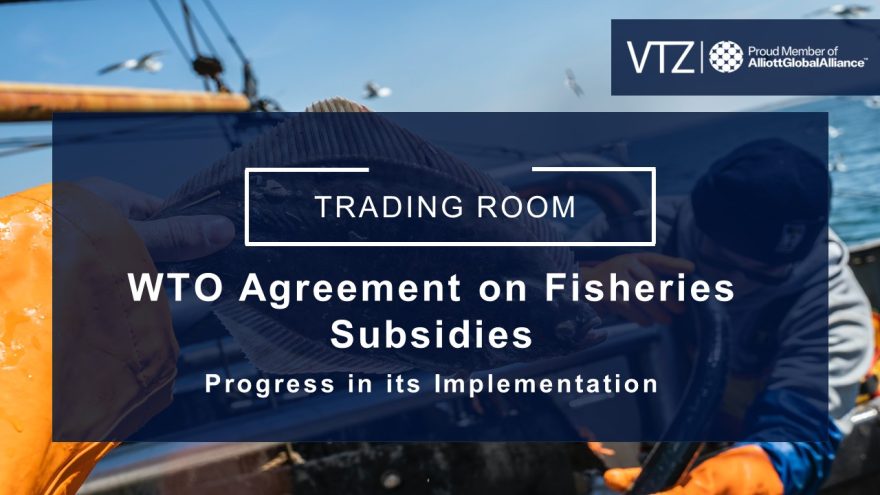Entry into force of the CPTPP for Chile
On February 20, 2023, the Mexican Ministry of Economy published the «Resolution announcing the entry into force of the Comprehensive and Progressive Agreement for Trans-Pacific Partnership (CPTPP) for Chile» in the Official Gazette of the Mexican Federation.
Implications for Chile
After 4 years of its ratification process, Chile has become the tenth member country of CPTPP. Its other trading partners in this agreement are Australia, Canada, Japan, Malaysia, Mexico, New Zealand, Singapore, Vietnam, and Peru. Besides, the CPTPP market comprises almost 500 million people and represents 13 percent of the world’s GDP.
With the entry into force of the CPTPP for Chile, only Brunei has yet to complete its ratification process for this trade agreement to become binding for all its original members. In addition, China, Ecuador, Taiwan, and the United Kingdom have expressed their intention to adhere to this agreement as from 2021.
On Feb. 21, Chile became the 10th economy in the world to join the Comprehensive and Progressive Agreement for Trans-Pacific Partnership, aka the #TPP11. The treaty is expected to reduce tariffs on foreign products and lower consumer prices. #CPTPP pic.twitter.com/6LZTvzhBNf
— Chile Today News (@ChileTodayNews) February 21, 2023
Trade between Chile and Mexico
In terms of trade, the Mexican Ministry of Economy reports that Chile is Mexico’s 20th most important trading partner. In 2022, Mexico imported 2.042 billion dollars in goods from Chile. Likewise, Mexico exported 1,646 million dollars goods to Chile.
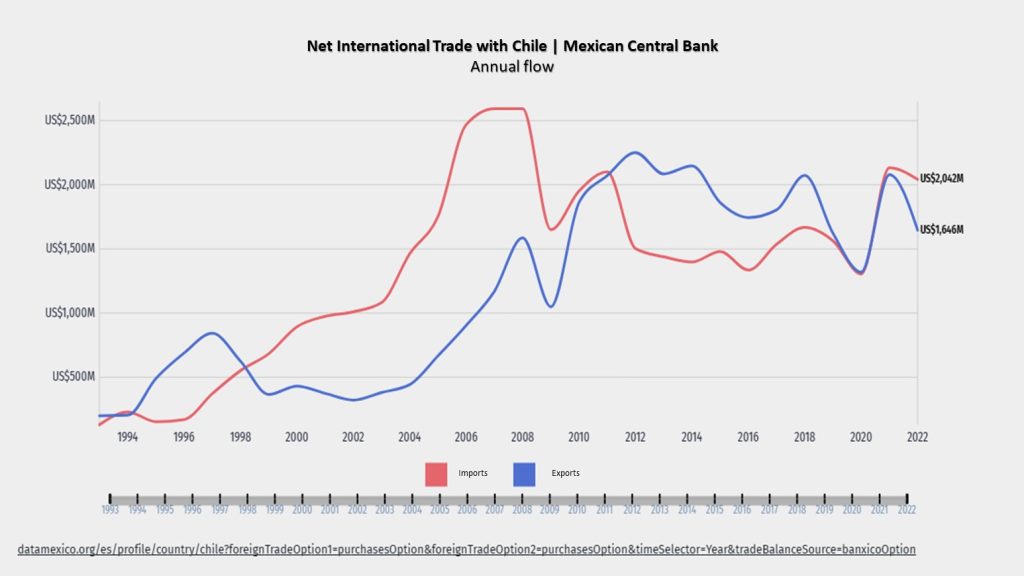
In 2021, Mexico mainly exported monitors, projectors, merchandise transportation vehicles, automobiles, and other passenger vehicles to the Chilean market. At the same time, the Chilean products that Mexico imported the most were copper, meat, and wood products.
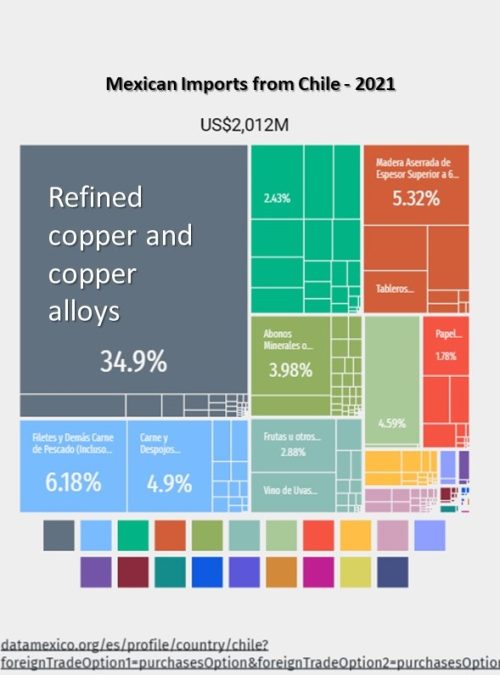
Certification of Origin: What changes?
An essential aspect of the CPTPP is that this agreement simplifies the procedure for certifying the origin of a good. Before, a Mexican or Chilean producer or exporter had to request the authorities to issue a certificate of origin under the Pacific Alliance to certify that such goods complied with the rules of origin.
In other words, companies from these countries had to go through a specific procedure for Chilean or Mexican goods to benefit from Pacific Alliance tariff preferences. Now, CPTPP allows Chilean and Mexican exporters and producers to self-certify the origin of their goods. In other words, companies no longer need to carry out the certification procedure before the authorities, since now exporters and producers can perform such certification themselves.
Implications of the self-certification of origin
Although self-certification has its advantages, companies should be cautious. Chilean or Mexican exporters or producers must review the rules of origin, comply with the formalities of the procedure, and keep the records that support their certifications in accordance with CPTPP. If Mexican or Chilean authorities detect errors in the certification, importers will lose the tariff preferences for their imports and will have to pay the applicable tariffs.
Therefore, importers should include in their contract clauses an obligation that exporters or producers must participate in the origin verification procedures initiated by the authorities. In addition, VTZ recommends including contract clauses that establish that exporters will repair any damage caused by a determination that denies the application of tariff preferences for an improper certificate of origin.
Foreign investment of Chile in Mexico
In terms of foreign investment, the Mexican Ministry of Economy indicates that Chileans have an accumulated investment of US$1,130.1 million in Mexico. In particular, Mexico registered a direct foreign investment (FDI) of US$50 million by said country in 2022.
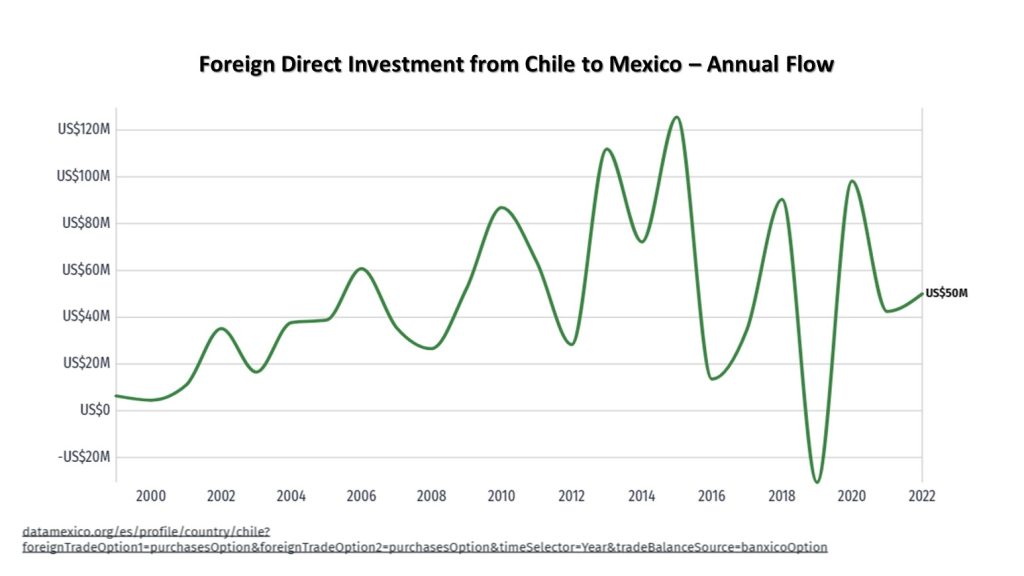
Furthermore, the Ministry of Economy notes that there are 765 companies with Chilean capital in Mexico. Most of these companies are located in Jalisco, Mexico City, Sonora and Michoacan, and are engaged in various commercial activities. However, Chilean investment only represents 0.2% of foreign direct investment (FDI) in Mexico at this time.
What comes next?
Although trade with Chile only amounted to 0.42% of Mexico’s total trade in 2021, the entry into force of the CPTPP may bring benefits for both countries. Certainly, this trade agreement constitutes an important opportunity to strengthen the trade relationship between Chilean and Mexican companies in upcoming years.
If you are interested in this topic, VTZ has several posts on the CPTPP and its benefits for the companies of the members of this agreement:
Need more information?
VTZ is a firm specialized in International Trade and Customs with extensive experiences advising companies in export and import procedures, as well as complying with tariff and non-tariff restrictions to trade.

